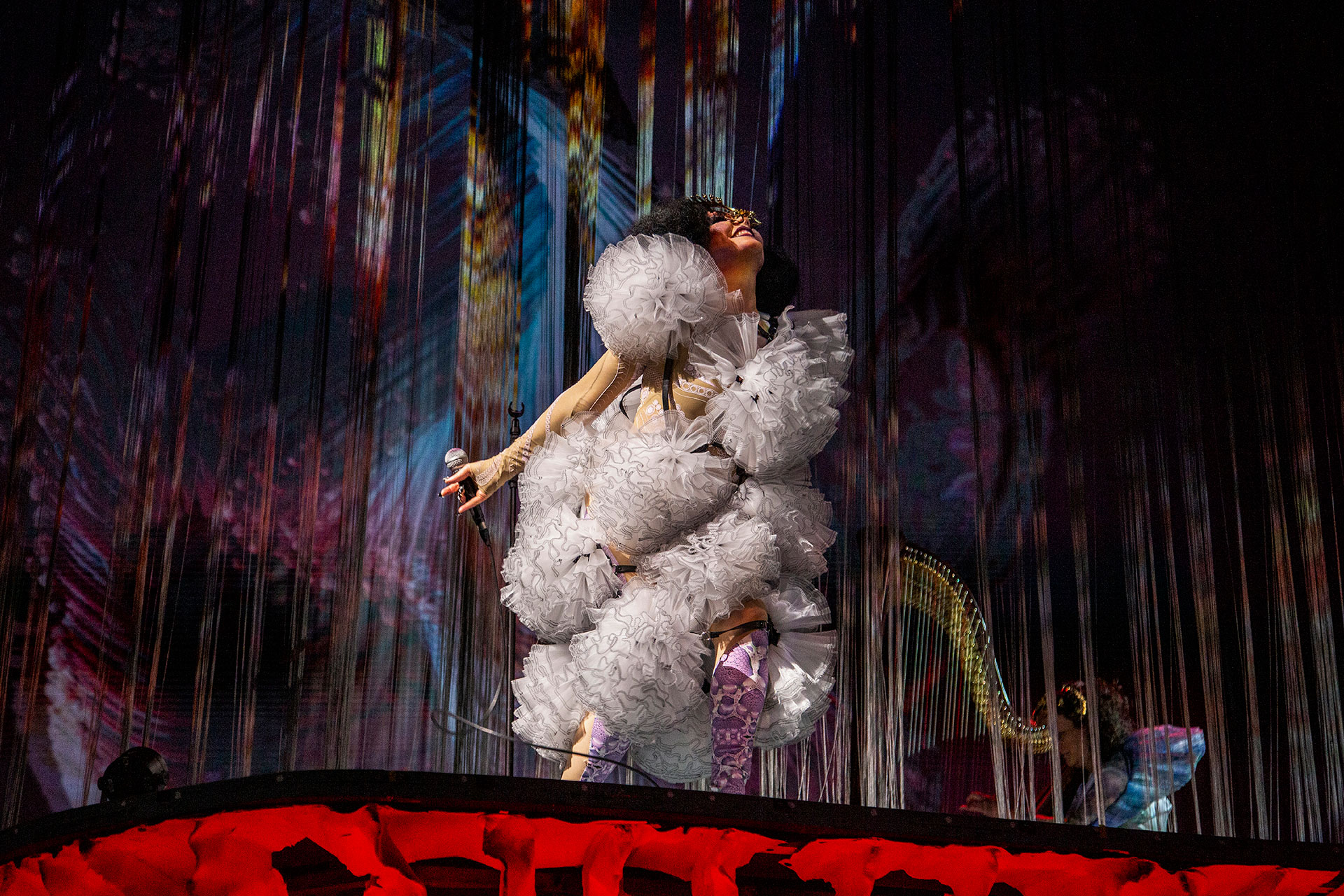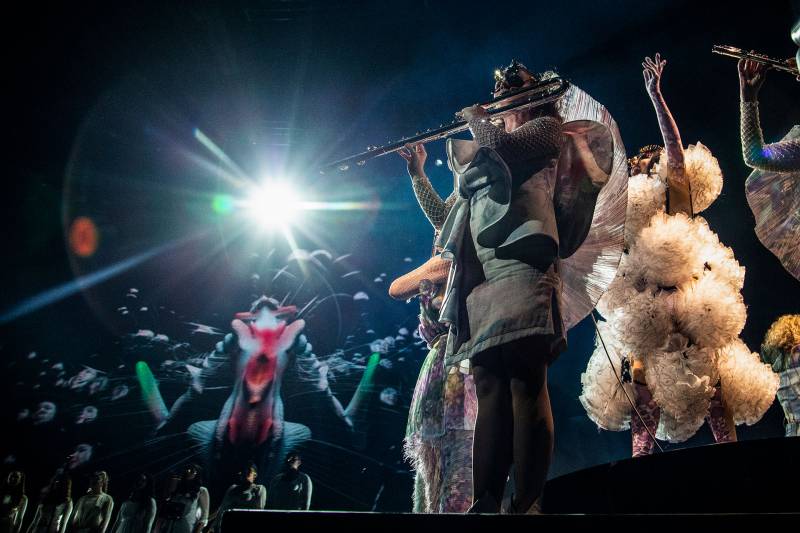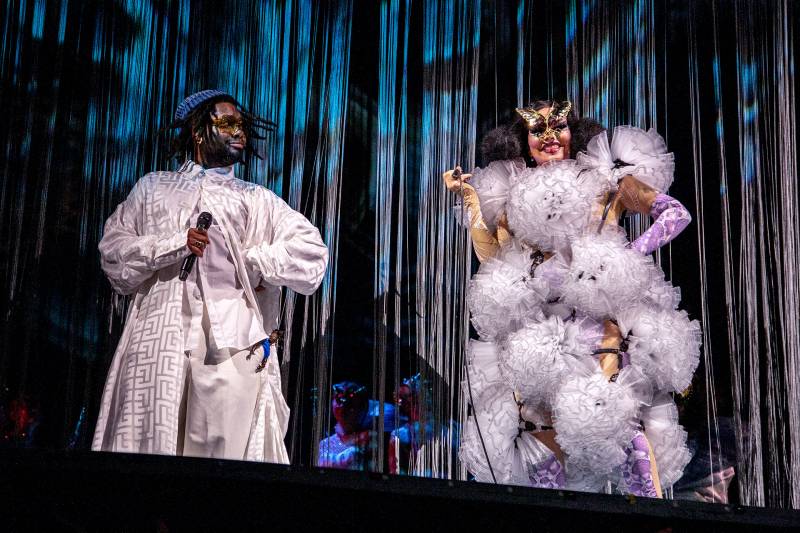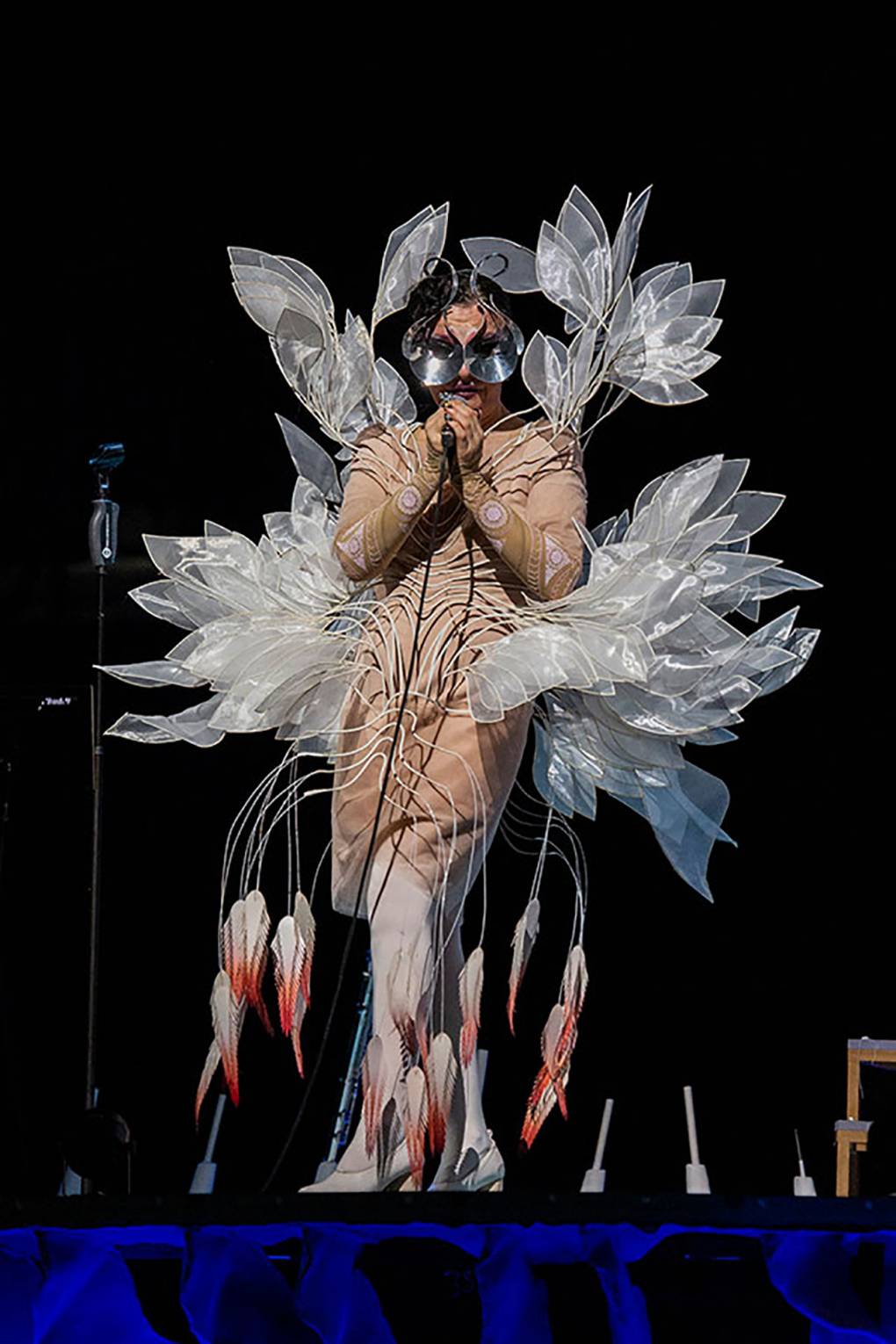
I would give anything to go back in time and see Duke Ellington. Even in the later years, after famous members of his orchestra members had left. Even if he weren’t performing any hits at all. I would love to see Duke Ellington because everything Ellington played contained his distinct, singular vision. There’s even a term for it: Ellingtonia.
I thought of Duke Ellington on Friday night while watching Björk’s Cornucopia at the Chase Center in San Francisco. Across the 100-minute production, she played no “hits,” and just two songs from the 1990s, the decade that the general public (and Billboard charts) most associate with her imaginative videos and singles. Instead, what transpired onstage was something better: Cornucopia is the most expansive, extravagant outgrowth to date of Björk’s intricately honed creative voice. At this point, her output deserves its own descriptor, its own “Ellingtonia,” because there is clearly nobody on the planet who can do what Björk does.

With a setlist pulling mostly from the 2017 album Utopia, the concert is music, fashion, art film, theater and symposium all in one. The songs featured electronics, percussion, harp, the Icelandic flute septet Viibra, and the occasional water bowl. The stage set resembled mushrooms, and the projections alternated between sea coral forms and root systems.
If this sounds like the soundtrack to a nature documentary, well, the show is certainly that, too, although one that’s realistic about the future of the planet if mankind continues on its destructive path. (It repeats on Tuesday, Feb. 8, at the Chase Center.)
Cornucopia opened with a stirring 10-minute invocation by the 18-piece Los Angeles choir Tonality; the text of which drew from Greta Thunberg’s speech at the U.N.’s Climate Action Summit: “We are in the beginning of a mass extinction, and all you can talk about is money and fairy tales of eternal economic growth / How dare you!”

In many ways, Cornucopia is an extension of Biophilia, the last tour Björk brought to the Bay Area in 2013 at the Craneway Pavilion in Richmond. That show, in the round and narrated by David Attenborough, effused with the wonder of nature and its fragility. That she should return nearly 10 years later with a message more urgent and foreboding is a reminder of how little progress our world leaders have made. Sometimes this manifested in projected messages about the Paris Agreement and the need for a “matriarchal dome” of ecological guardianship; during “Tabula Rasa,” it took the form of Björk singing “Let’s clean up / Break the chain of the fuckups of the fathers.”


